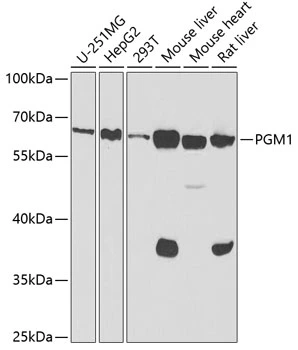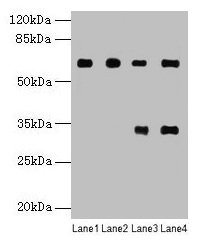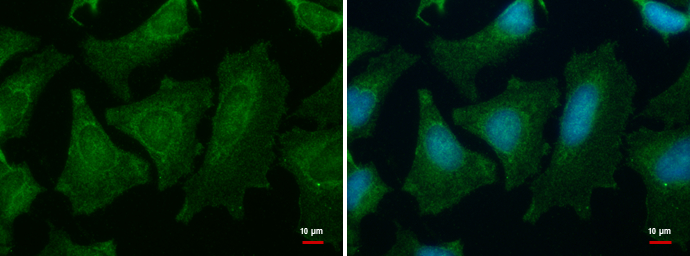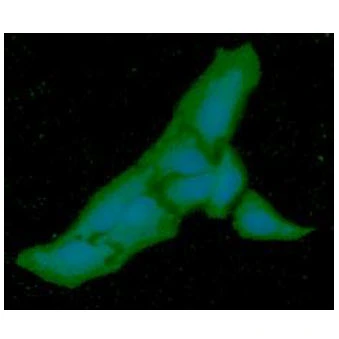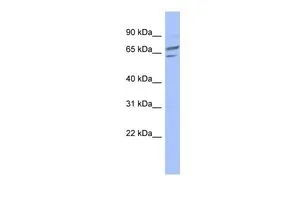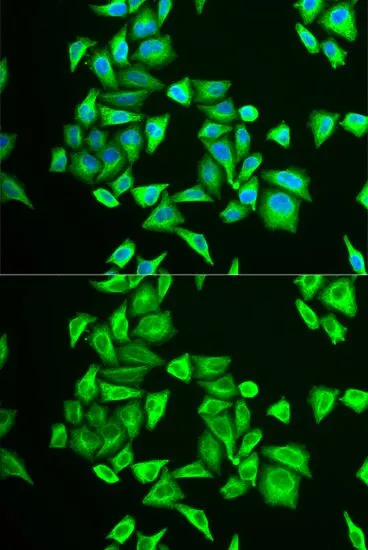
ICC/IF analysis of U2OS cells using GTX54640 PGM1 antibody. Blue : DAPI
PGM1 antibody
GTX54640
ApplicationsImmunoFluorescence, Western Blot, ImmunoCytoChemistry
Product group Antibodies
ReactivityHuman, Mouse, Rat
TargetPGM1
Overview
- SupplierGeneTex
- Product NamePGM1 antibody
- Delivery Days Customer7
- Application Supplier NoteWB: 1:500 - 1:2000. ICC/IF: 1:10 - 1:100. *Optimal dilutions/concentrations should be determined by the researcher.Not tested in other applications.
- ApplicationsImmunoFluorescence, Western Blot, ImmunoCytoChemistry
- CertificationResearch Use Only
- ClonalityPolyclonal
- ConjugateUnconjugated
- Gene ID5236
- Target namePGM1
- Target descriptionphosphoglucomutase 1
- Target synonymsCDG1T, GSD14, phosphoglucomutase-1, PGM 1, glucose phosphomutase 1
- HostRabbit
- IsotypeIgG
- Protein IDP36871
- Protein NamePhosphoglucomutase-1
- Scientific DescriptionThe protein encoded by this gene is an isozyme of phosphoglucomutase (PGM) and belongs to the phosphohexose mutase family. There are several PGM isozymes, which are encoded by different genes and catalyze the transfer of phosphate between the 1 and 6 positions of glucose. In most cell types, this PGM isozyme is predominant, representing about 90% of total PGM activity. In red cells, PGM2 is a major isozyme. This gene is highly polymorphic. Mutations in this gene cause glycogen storage disease type 14. Alternativley spliced transcript variants encoding different isoforms have been identified in this gene.[provided by RefSeq, Mar 2010]
- ReactivityHuman, Mouse, Rat
- Storage Instruction-20°C or -80°C,2°C to 8°C
- UNSPSC41116161

